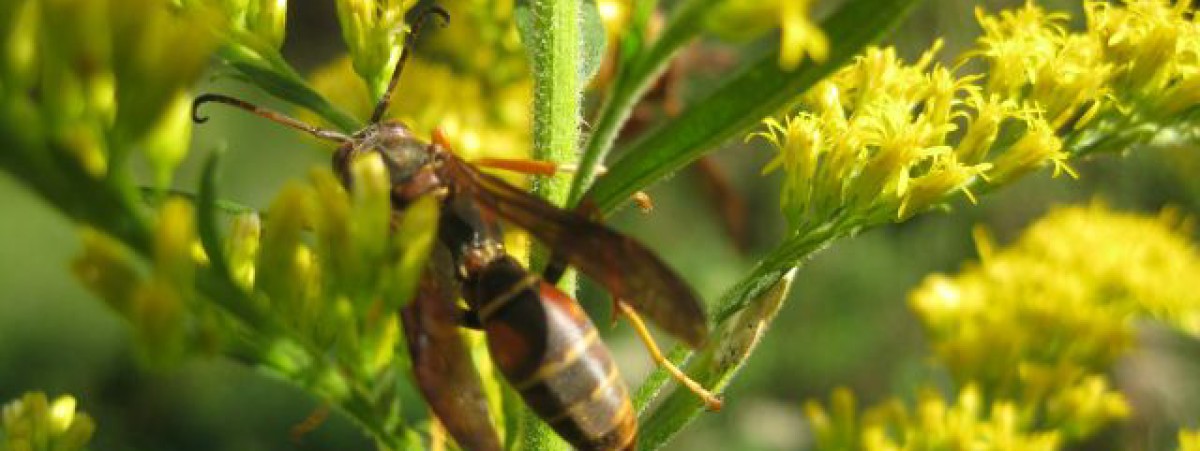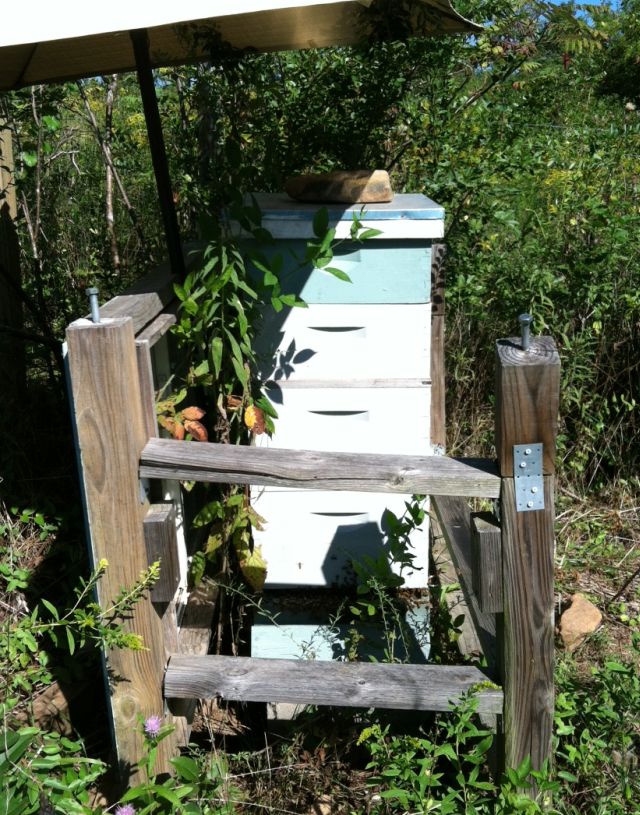You can see my bee hive above. It faces south, has an umbrella for summer sun protection and a window on the west side to allow the winter sun but not the winter winds. Now that Fall has arrived I begin my winter preparations. There are 2 larger boxes at the bottom, the brood boxes, where the queen resides and the 2 smaller boxes above are supers from which I collect honey. My last honey harvesting was from the top super and I returned the super and its 10 frames to the hive for the bees to repair the comb damaged in the extraction process.
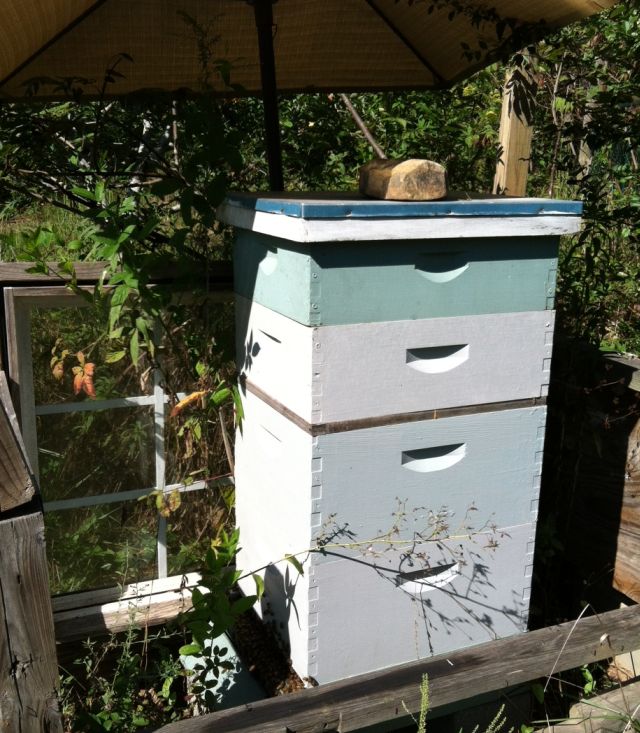
The bees will go through winter in just the 2 larger bottom boxes and they must have adequate food supplies. So I have to transition out the top 2 supers and then supplement feed the bees. Today I examined the top super and noted the 10 frames had drawn comb but no honey. So I carefully lifted each frame vertically, gently brushed off the bees and put the frame in a separate box. The bees were docile since I was not stealing their honey just rearranging living accommodation. The super below also appears to have no honey and I will remove it in a few days. But first I must deal with the frames I removed.
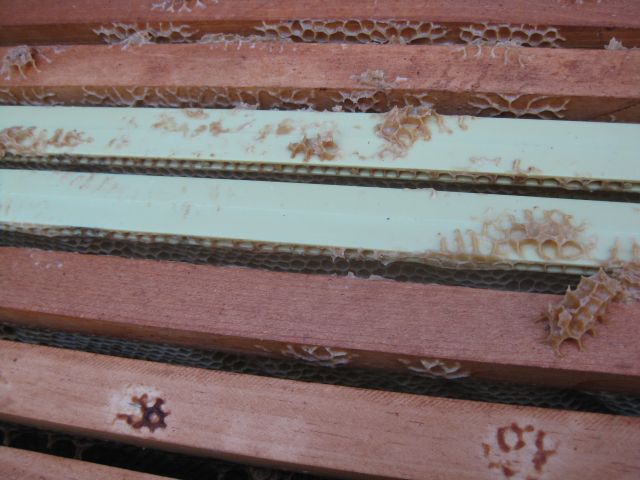
I scraped off the excess burr comb for my wax collection, and then placed the frames into kitchen trashbin liners, (1 liner had 4 frames, the other 2 liners 3 frames each) and put the 3 bundles into the deep freeze section of the refrigerator. From experience I know I must freeze and kill off the secreted wax moths and other despoilers, and this will take a few days. Then I will store the bundles in black trash bags in the house where they will remain until spring when I will give them back to the bees for the spring nectar flow.
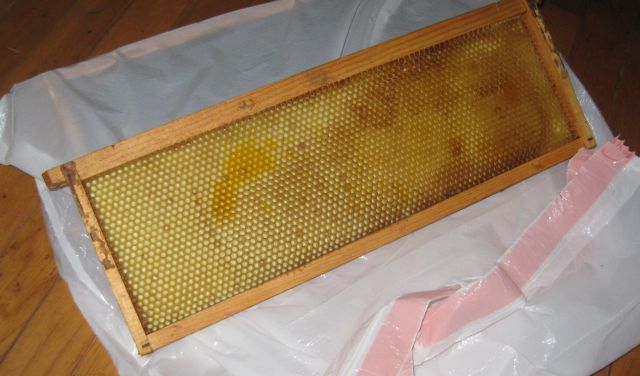
The bees are more productive when they have drawn comb available and do not have to manufacture new comb. So in a few days, when there is room in the freezer I will freeze the frames from the other super. And then I will begin supplementing the feed of the bees with cane sugar water (sounds terrible). But, before then, I hope the good rains we had over the weekend will help the goldenrod and other fall flowers produce lots of nectar for the bees to harvest.
I do not give chemicals to my bees and have been assured that they will die from infections vectored by varroa mites. Maybe not this year, but certainly next year, I am told. I just don’t like chemicals – I don’t take any and I do believe that a strong immune system helps wonderfully. Also I hear the problems – one bee club member dowsed her 3 hives with varroa treatments and now the 3 queens appear impaired (I wonder why) and she wishes to replace them. I also heard that a major queen producer(s) – I won’t say where- had problems with mites and to secure the sign off of inspectors, gave the bees the treatments, was successful with the mites and shipped the queens. Apparently the viability of the sperm of the drones was affected and the egg production of the queens has not been satisfactory.
It seems there are 2 factors – the attacks of the mites and then the diseases which the mites introduce. The varroa treatment nails the mites (until they become resistant and we have to use more toxicity) but also adversely affects the bees and their immune system. Not really understanding all this stuff, I decided I will not medicate my bees and if they make it well through the winter I will maybe do a mite inspection next year and, if necessary, maybe treat them. And maybe its time the queen producers focused more on hygienic (mite grooming) queens with good genes acclimatized to our areas than very productive early season kickstarting queens. But please keep them friendly.
